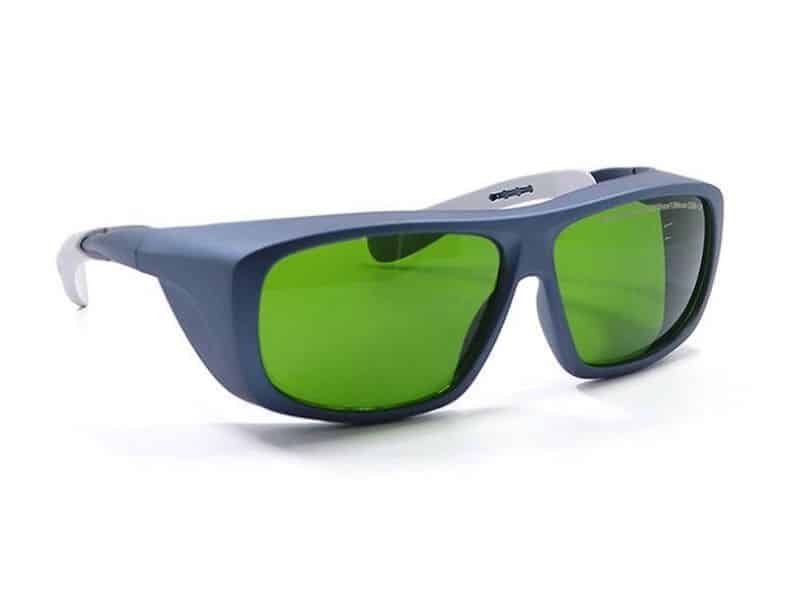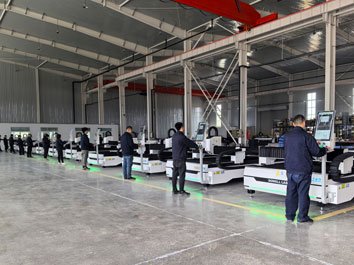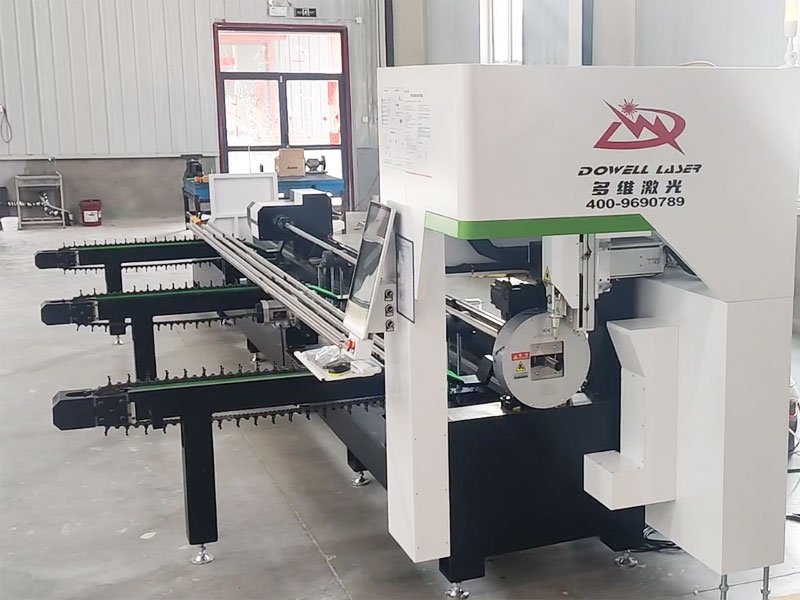After many customers purchase fiber laser equipment, the light source generated by the laser will cause a certain degree of damage to our eyes during use. For this problem, goggles for laser protection are necessary.How to choose the laser protection glasses you need? Don’t panic, this article will answer this question for you.

What is Laser Protection Glasses
Fiber laser protection glasses (laser goggles, laser safety glasses, laser protective eyewear) can prevent or reduce laser damage to the human eye.
Fiber laser laser eye glasses protection is an efficient tool for eye protection, suitable for personnel who often work in laser scenes. Laser light protection glasses can fully protect lasers and strong light in specific bands. Suitable for a variety of laser equipment. Visible light transmittance reaches more than 70% and optical density is above 5.0.
For lasers with wavelengths in the visible light range (400-700nm), there is a simple way to demonstrate the protective effect of laser protective goggles. For example, when we take a 532nm laser pen through ordinary sunglasses, SD-2 (laser protective goggles with protection wavelengths of 190-400/600-700nm) and SD-4 (laser protective goggles with protection wavelengths of 190-540/800-1100nm), we can see the obvious difference in the light spot after the incident beam passes through the glasses and hits the wall:
Laser Protection Glasses Type:
Absorption type and reflective type, the former is used the most.
Goggles are a kind of glasses that play a special role. Different occasions require different glasses. Such as surgical glasses for hospitals, welding glasses for welding, safety glasses for laser engraving, safety glasses for laser cutting, etc.
Which Laser Type Requires Laser Safety Eyewear?
The bands are 355nm, 532nm, etc.
For laser types, safety glasses for laser are required for lasers in the 355nm, 532nm, 808nm, 1030nm, 1064nm and 10600nm bands.
Anti laser glasses are a special type of glasses that filter laser radiation and can absorb or reflect laser radiation of specific wavelengths, thereby protecting the eyes from laser damage.
Laser safety eyewear, also known as labor protection glasses, safety glasses and protective masks
Its main function is to protect the eyes and face from electromagnetic wave radiation such as ultraviolet, infrared and microwave, as well as damage from dust, smoke, metal and gravel debris, and chemical.
Types of Fiber Laser Safety Glasses
Protective glasses against solid debris
Used to prevent mechanical damage to the eyes from metal or gravel debris. Eyeglass lenses and frames should be sturdy in construction and resistant to impact. There should be a shield around the frame and ventilation holes in it. Protective lenses can be made of tempered glass, glue-bonded glass or copper wire mesh protective lenses.
Protective glasses against chemical
Protects against chemical damage to eyes from irritating or corrosive Ordinary flat lenses can be used, and the frames should be covered to prevent Usually used in laboratories, hospitals and other places, general medical glasses can be used universally.
Protective glasses against radiation
Protect your eyes from harmful effects of excessive ultraviolet rays and other radiation. The lenses are made of special glass that can reflect or absorb radiation, but can transmit a certain amount of visible light.
The lenses are coated with bright chromium, nickel, mercury or silver metal films that can reflect radiation;
Laser Shield Glasses Are Suitable for People
Laser cutting machine operators, computer operators, drivers, gas welders, electric welders, high temperature furnace operators, medical or industrial personnel when operating X-ray fluoroscopy;
Suitable for the protection of ultraviolet laser, excimer laser, neodymium glass laser, semiconductor laser, CO laser, neodymium-doped garnet laser, ruby laser, CO2 laser, gallium arsenide laser and other lasers.
Which Brand of Laser Protective Eyewear Is Better?
NoIR Laser Company is an American manufacturer specializing in laser protective glasses (L.L.C. for short). NoIR’s leading craftsmanship and advanced laser protection technology brought about by more than 20 years of development can provide customers with a series of high-safety laser protective glasses, and its customers are all over the world.
NOIR laser protective glasses have extremely high cost performance, good protective performance, many standard models, high quality and durable lenses, and have passed relevant safety certifications. Its commonly used models include FG1, DBY, DBD, ARG, EC2, KTI, YG2, YG3, YLW, etc. It has also launched various new laser protective glasses such as YG4, YG5, RT1, RT2, RB1, HOY, IRD4, AG8, GRA and so on.
The protection level of NOIR laser protective glasses can reach OD7+ for all laser bands. There are also a variety of combinations of protection for different bands, and they comply with various relevant safety certification standards (CE certification, EN207 certification, etc.).
How Choose the Best Laser Protection Glasses
Choosing the best glasses to use for fiber optic laser is crucial for protecting your eyes. Here’s a breakdown of key factors to consider:
Laser Properties:
- Wavelength: Different lasers emit different wavelengths of light. Your glasses need to target that specific wavelength for proper absorption or blocking. Look for the laser’s wavelength on its label or manual.
- Power: Higher powered lasers require glasses with a higher Optical Density (OD) rating. OD indicates how much light is blocked; a higher OD means more blockage. For strong lasers, an OD of 5 or higher is recommended, while lower-power applications might use ODs between 2 and 3.
Safety Features:
- OD Rating: As mentioned earlier, check the OD rating at the specific wavelength of your laser. Ensure the glasses offer enough OD for safe use.
- Compliance Standards: Look for glasses certified by reputable organizations like the American National Standards Institute (ANSI) for laser safety.
Comfort and Functionality:
- Frame Style: Consider fit and comfort. Glasses should provide a good seal around your eyes and be comfortable for extended wear.
- Visible Light Transmission: This determines how much visible light passes through the lens. A good balance is important for seeing clearly while working.
- Material: Choose between glass or plastic lenses. Glass offers superior scratch resistance, while plastic is lighter and may be more impact-resistant.
Additional Tips:
- Consult a Laser Safety Officer (LSO): If you’re unsure about the right glasses for your laser, consult an LSO for professional guidance.
- Don’t rely on lens color: Lens color doesn’t necessarily indicate the wavelengths it protects against. Always check the OD rating.



